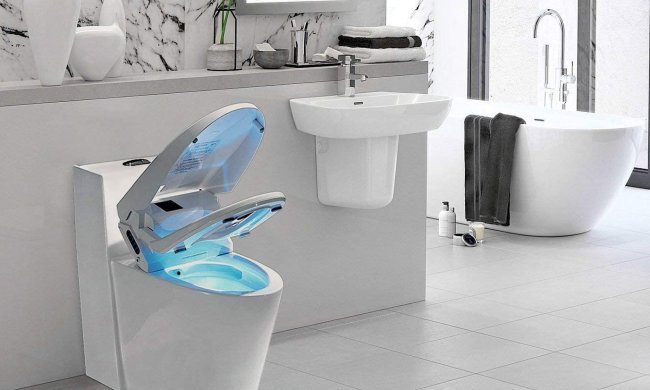Sometimes you don’t get an update from a startup in so long that you forget they’re still around. In 2017, we first wrote about RoomMe, a crowdfunded startup launched by Israel-based company Intellithings. RoomMe sounds cool, no doubt — it’s a personal location sensor (PLS) that can identify you when you enter a room and trigger a bunch of your smart home devices to do stuff based on your personal preferences.
So a couple of years later, Intellithings has brought RoomMe to market and is starting to ship its first products to customers this month.
The device was created to make not only room-specific smart home effects a reality but also to make person-to-person smart home automations as effortless as walking into a room. Intellithings has patented something called “Presence Sensing Technology” to identify the person in a room, although whether that’s still a function tied to smartphone identification or some other form of ID — the company says it doesn’t use biometrics and its system doesn’t require Internet connectivity — remains to be seen.
Regardless, the smart home platform can figure out which user is in which specific room in a house, apartment, condo, etc., and trigger the preset personal settings of that specific user. Dad retreats to his office and RoomMe can dim the lights and throw on the Brandenburg Concertos. Teenage daughter runs to her room and slams the door in a pique of fit, and it’s all heavy metal and colored lights. One of the great things about smart home technology is that a lot of it is only limited by your imagination and technical prowess.
“Sensors make the difference between a home that just has a few smart devices installed and a true smart home. Sensors, by name, sense what is happening. With RoomMe, we take that idea a step further: This is not a sensor that is triggered by a pet to turn on a light, but a personal location sensor that knows who is in the room and what that person wants the room to do, automatically,” said Oren Kotlicki, founder and CEO at Intellithings, in a release. “The opportunities are tremendous for truly enhancing how people live in their homes and simplifying how their connected devices automatically react to their presence in a room without the need to press a button or shout a voice command.”
The real innovation here is that while it sounds like setup might be a bit complex at first, it doesn’t take constant adjustment to work. It’s not based on motion, occupancy, or time-based programming like most smart home security systems and a bunch of smart home hubs, but actually responds to the single individual who is in the room at the time. RoomMe can identify up to 16 individual family members, which is virtually unheard of in a smart home platform.
Intellithings recommends a minimum of two sensors in order to get the best experience, but your need will vary based on the size of your home. Intellithings has been doing its best to integrate new brands constantly, and already works with a wide variety of popular smart home devices including those manufactured by Philips Hue, LIFX, Ecobee, Sonos and Bose. You can check out a bunch of different packages at www.getroomme.com or grab your choice through Amazon. The starter kit, which includes two RoomMe personal location sensors and access to the (inevitable) RoomMe smartphone app, will set you back $130.


